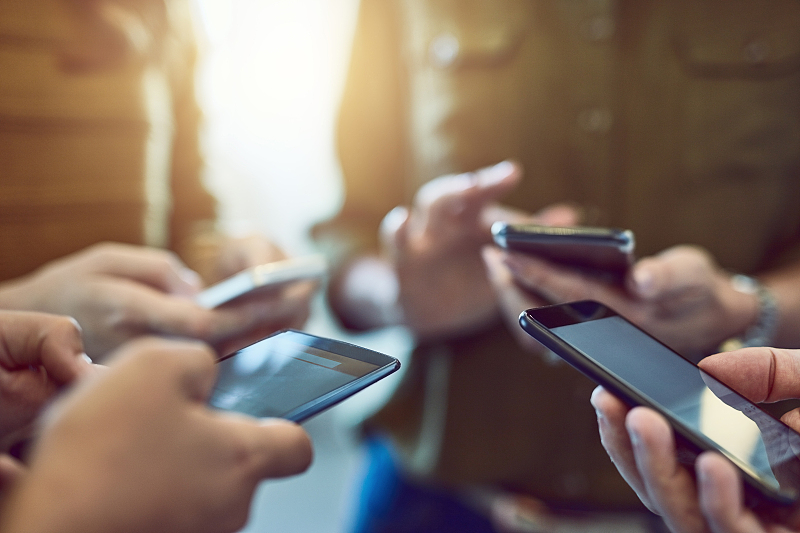Reading | not only the trap or a happy assassin, how to defeat the life thief of the mobile phone?
Author:Report Time:2022.09.19

"Mobile Brain"
[Sweden] Anders Hanson
Ren Li Xiaozheng translated
Houlang | Beijing United Publishing Company Published
Why can't we do without the mobile phone as long as we wake up, why is it easier for us to throw the Internet in the epidemic? Why does Bill Gates not allow children to use mobile phones, Jobs does not let children touch iPad?
How many traps are set on the mobile phone, and how can we defeat this life thief?
These issues also bother with Andes Sensen, chief mental health expert in Sweden. Based on his own research results, he creatively combines brain science, human evolution, and psychology. It is easier to be anxious and depressed, it is difficult to concentrate at attention, the time of virtuality, the poor sleep, the mood becomes worse, and the IQ becomes lower. Compared to adults who are led by their mobile phones every day, children who are in the stage of growth and development are facing more serious consequences. It provides further care and discipline suggestions in this book to save the physical and mental health of young people. At the end of the book, the author also produced a "security manual dedicated to people who traveled to the digital world". Through a short suggestion, readers help readers solve practical problems. The first step of saving the mobile phone brain started from putting down the phone and opening this book.
>> Select reading
We live in an unprecedented strange era.
What impact does digital life have on us?
The human brain cannot adapt to the digital age, which is the main content we are talking about in this book. As the new crown pneumonia swept the world, mobile phones became the main tool for people to communicate with the outside world. In this reality, can the views and content mentioned in this book help bring help?
I think it is when we urgently need to read this book, let us digest little by little.
Nowadays, the average time of adults using mobile phones per day is 4 hours (the data in the book is based on the statistical results of the author's draft. As of January 2022, the number is 7 hours. The media may be more time on the media. —— Editor's Note), teenagers are four or five hours. In the past 10 years, human beings have achieved behavioral changes at the fastest speed in history. What are the consequences of such changes? I hope to make a scientific answer to this.
How do other scholars view the digital age? In such an era, what kind of affected our mood, sleep time, and attention? Will the growth of young children and adolescents benefit or harmed? Do we really know all this? I tried to start from the source, surpass speculation and ideas, and discuss some of the facts that have been verified. These contents must be closer to the essence than "How long do you spend every day to play mobile phones every day?" Naturally, it is naturally more important.
The living standard has improved, why feel more and more unhappy?
As a psychiatrist, more and more patients I have seen recently came to seek help, and most of them are full of reflection on themselves. The most typical example is that in Sweden, one of each of the nine adults (!) Is taking antidepressant drugs. The situation of many other countries is similar to this. Human beings are enjoying unprecedented rich material life. However, in the past few decades when GDP (GDP) has risen rapidly, the number of people taking antidepressants has also increased sharply. The living conditions are getting better, why do we become more unhappy?
Material life is satisfied, why do people still feel anxious? The connection with others is getting closer, why do you feel more lonely? I hope to find the fundamental reason for these problems through this book. First of all, we can tell you that we are currently in an unprecedented strange era. At this moment, there are many "inconsistencies" between the world of our lives and the world that humans have lived and have been evolved. It is these "inconsistencies" that affect our emotions.

(Source: Visual China)
The biggest suspect of stealing time
We are in such a strange environment, but the mental state is not worse than now, which is really surprising.
—— Richard Dawkins, evolved biologists and writers
Whether it is taking a bus or a subway, I often see that some people think that their mobile phones are lost, and they seem very anxious. In the bags and pockets, they are constantly looking for mobile phones, as if facing the danger of life. When I finally found a mobile phone, accompanied by the ease of peace of mind like a tide, they also obviously got rid of the panic state. If we really lose thousands of dollars worth of things, we will indeed feel the pressure involuntarily. However, this uneasiness when looking for a mobile phone does not seem to be completely related to money.
A previous experimental results showed that when the subjects needed to hand over their mobile phones, within 10 minutes, the secretion of stress hormones (cortisol) increased. This is exactly the combat or escape response of the brain. For those who have always used mobile phones, this change is particularly significant; the changes in cortisol secretion of people who occasionally use their mobile phones are not so obvious. To examine the way of brain development, you will find that the above phenomenon is not surprising.
In order to survive, humans need to focus on things that can secrete dopamine. If you take things that can increase dopamine every 10 minutes, people will naturally feel the pressure, and the brain will inevitably think that a certain necessity of survival disappears. The HPA axis was activated, and the brain shouted, "What do you do! I need to give me a dopamine! It's anxious!" So we will feel strongly uneasy and continue to work hard to meet our needs. When the mobile phone is not around, we will feel anxious. Conversely, when the mobile phone is close to the eyes, people seem to feel stress. A mobile phone use habit investigation conducted research on people aged 20 to 29, and also maintained a follow -up survey of them in the following year. The final experimental results show that people who use mobile phones more frequently are particularly easy to encounter problems or feel stress, and it is even more uncommon for depression symptoms. The American Psychology Society also concluded a similar conclusion after a questionnaire survey of more than 3,500 objects. The results of this survey were named "Stress in American". Multiple pressure. Many people think that it is a wise move to put down their mobile phones from time to time. Two of each of them agreed to say that this number "detox" (Detox) has a positive impact on their emotions. There are no more than 30%of those who have really practiced digital detoxification.
Through comprehensive analysis of the results of countless large -scale research, we found that there is indeed a connection between stress and excessive use of mobile phones. Although the impact it brings is only minor or medium, if the parties have weak pressure resistance, the impact of mobile phones on him may be difficult to ignore.
Author: Anders Hanson
Edit: Kim Jiuchao
Editor in charge: Zhu Zilong
- END -
The high temperature problem of the corona is not solved. When the empty rocket is launched in succession, when will the truth know?

The US launching empty rocket, the target points to the doubt, soft X -rays or the...
Singapore media: Chinese -funded "big factory" settled in Singapore, setting off a war -to -people war
Singapore's Lianhe Zaobao June 26 article, original title: Chinese -funded big factory set off a war -catching war in China. The Internet giants have high salary and large recruitment scale. They